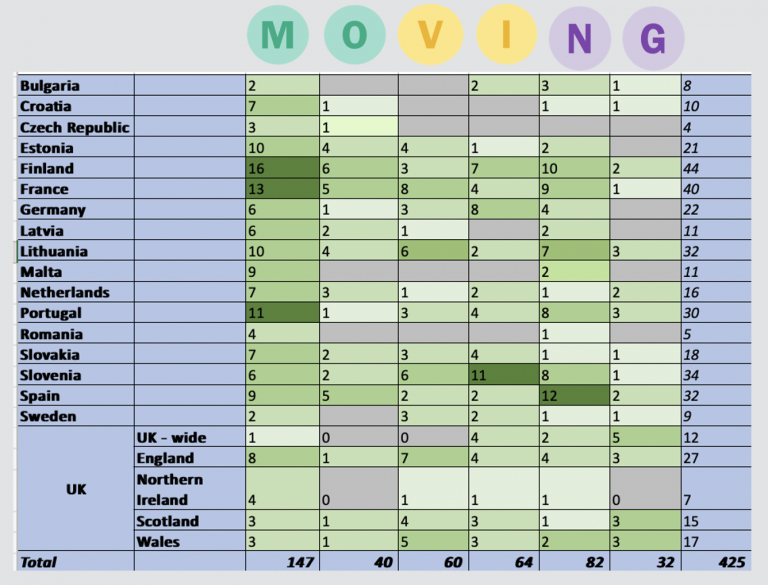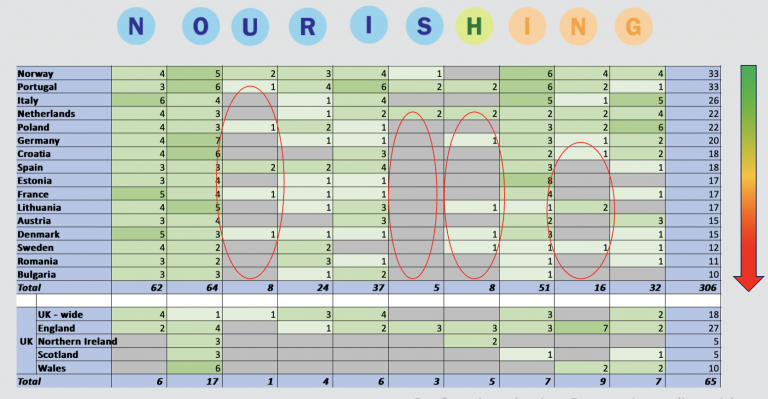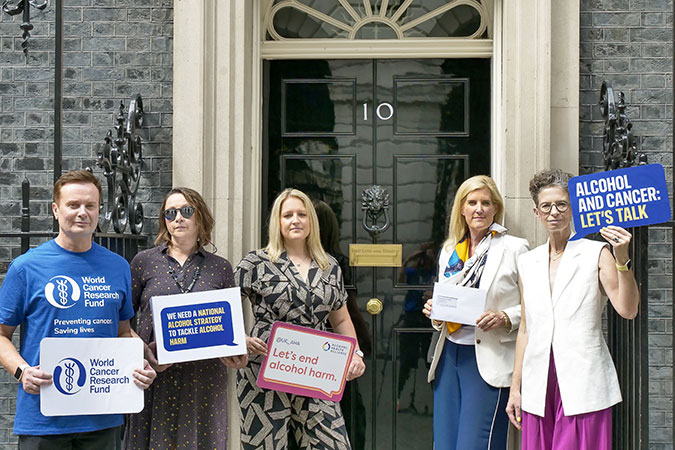Opportunities to make healthy choices regarding diet and physical activity have become more and more difficult due to changes in people’s environments. These changes are increasingly affecting people’s health. Rates of non-communicable diseases (NCDs) and obesity are on the rise, so several EU-funded projects are exploring what the problem is, where it stems from, what solutions we have and what governments are doing to tackle the problem across Europe.
 Experts discussed these issues at a 3-day symposium in Brussels. It brought together researchers, policymakers, civil society and youth representatives to hear from:
Experts discussed these issues at a 3-day symposium in Brussels. It brought together researchers, policymakers, civil society and youth representatives to hear from:
- JA Best-ReMaP – Joint Action on Reformulation, Marketing and Public Procurements
- H2020 project CO-CREATE – Confronting Obesity: Co-creating policy with youth
- JPI HDHL project PEN – Policy Evaluation Network: Public policies addressing health-related behaviours in Europe
- H2020 project STOP – Science and Technology in childhood obesity policy on their work on childhood obesity
Enough action from governments?
We’ve been looking at what policy actions 27 European governments have regarding promoting healthier diets and increasing physical activity. Our analysis of actions in our NOURISHING and MOVING policy databases tells us where there is progress but also where there are significant gaps.
For example, in our analysis below of the policies in the different areas of the MOVING database (where each letter represents a separate policy area), we can see the number of policies in each section. This helps us ascertain whether a country has adopted a comprehensive approach to physical activity.

Progress is evident in countries such as Finland, France, Lithuania, Netherlands, Slovakia, Slovenia, Spain, England, Scotland and Wales, which have taken a comprehensive approach to promote physical activity. That means their governments have designed policies that do not focus on single settings (eg physical education in schools). Instead, they have implemented multi-sectoral policies to promote physical activity, including actions on infrastructure, the built environment and promoting physical activity in healthcare, among other measures.
For nutrition, only two countries among those we reviewed have taken a comprehensive approach: Portugal and England. The most common policies refer to school food standards, nutritional labelling and information on healthy nutrition. Notably, the less common policies are the ones that deal with people’s environments, such as:
- food affordability and purchase incentives
- incentives to create healthy retail environments
- supply chain incentives to ensure coherence with health within food systems, including through public food procurement

Making a policy is only the start
The gaps we identified in nutrition and physical activity policy are key areas where action is needed, especially as they can shape the entire living environment. It is vital to monitor impact of these policies, to track progress and identify failure.
For example, it is now increasingly well-established that the UK Soft Drinks Industry Levy has helped to decrease sugar consumption through soft drinks in the UK. The levy has also effectively incentivised manufacturers to reduce sugar in their products.
However, no single policy will fix diet-related risk factors or promote physical activity to address childhood obesity and its links with developing NCDs later in life. Furthermore, we must emphasise that comprehensive, multi-sectoral action is needed.
We cannot recommend that people eat healthily and then allow food systems to work in a way whereby highly processed foods high in fat, sugar and salt are cheaper and more readily available. We cannot encourage people to walk more but do nothing to ensure that they live and work in walkable neighbourhoods. Systems and environments need to change to support healthier choices and behaviour change.
Monitoring progress
Moving forward, monitoring policy adoption and evaluating its implementation is essential. The NOURISHING and MOVING databases are vital tools for policy monitoring advanced through the CO-CREATE project. Both the PEN and STOP projects have increased our knowledge of what works and how in obesity prevention. This includes research on how to strengthen the design and implementation of policies on school food environments, food reformulation or physical activity in schools, as well as how to assess national and international policies that influence food and physical activity environments.
However, we know that what is currently in place is not enough – our analysis shows many gaps. Better engagement with key stakeholders and learning from best practice tools is needed. One key area where more action is needed is ensuring that public food procurement is in line with nutritional standards. In this area, the Best-ReMaP project is establishing inter-sectoral working groups that share lessons learned and tools across several European countries.
Lastly, we know we must work to engage meaningfully with actors such as civil society and youth organisations – as their advocacy can put further pressure on policymakers. The CO-CREATE project shows that such engagement can offer innovative answers and pathways for progress.



